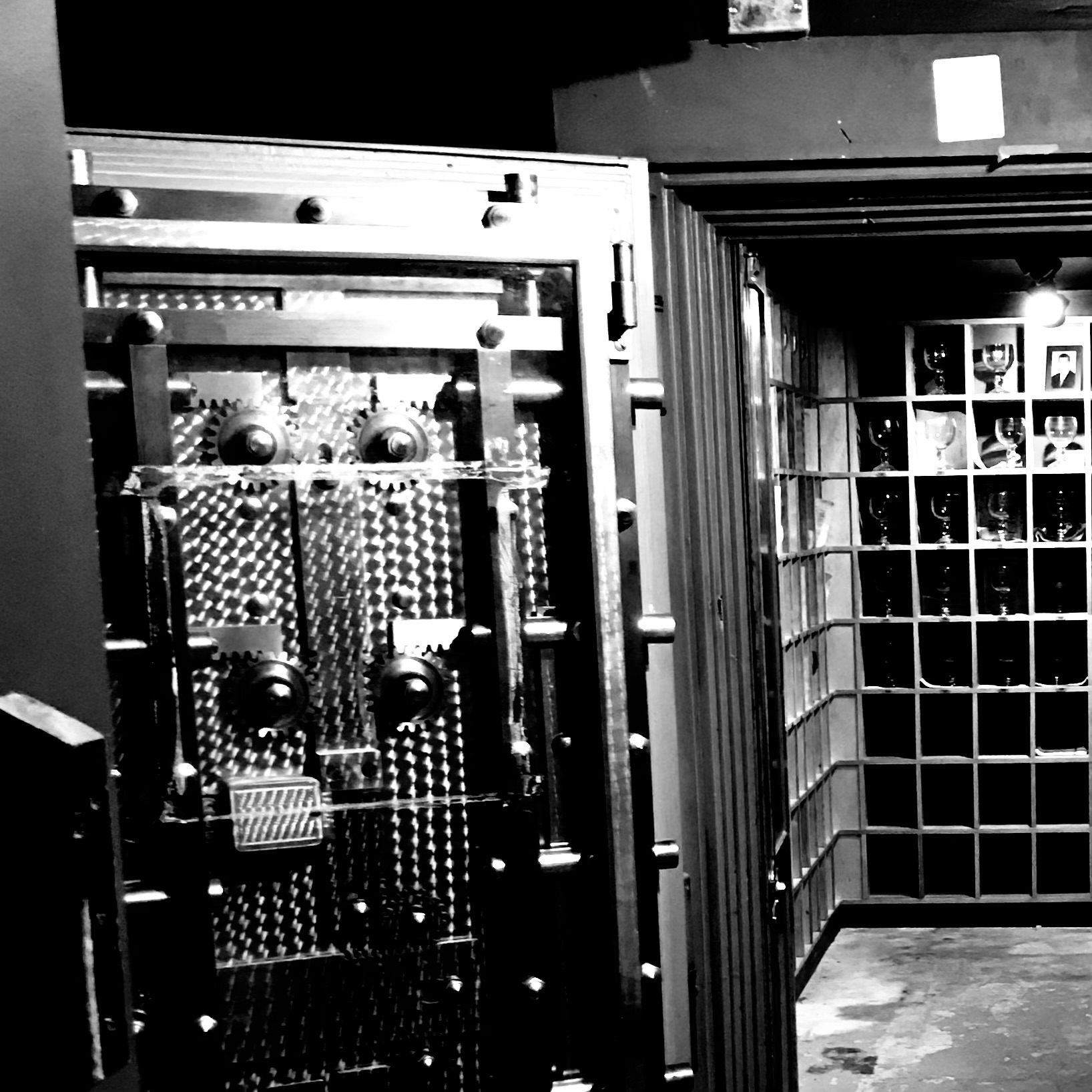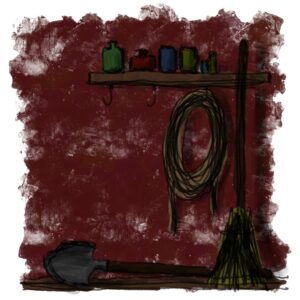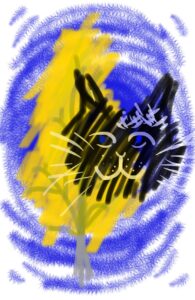A tarnished brass key on a plain silver keyring protruded from one of the two locks on the face of the small metal door; a second shinier key was inserted into the other lock. Baker pulled the door open. The worn hinges squeaked.
There were hundreds of other doors arranged in columns and rows across the walls of the vault like a great steel crossword puzzle; inside each was an oblong metal box. All were of similar size and made of the same brushed steel as the doors, with a lid and a folding handle. The box from compartment number 939 made a scraping noise as Baker removed it.
The attendant waited, eyes focused on nothing in particular. He was dressed well, though not ostentatiously. His suit was simple and black, the standing collar of his shirt buttoned tightly. It was clear, though, that he served a discerning clientele—the kind who expected formality.
Baker lifted the box easily, as though it were made of tinfoil and filled with nothing heavier than old receipts or financial papers. He set it on the small table in the middle of the vault.
“I’ll take this one,” Baker said. He paused. “I’ll be taking it with me. The…contents, I mean.”
The attendant nodded. “Of course, sir.” He looked down the hallway a short distance to a series of doors, all ajar. He gestured. “Quiet this morning, sir,” he said.
Baker carried the box through the first open door, closing it behind him. The walls were soundproofed, and he heard the muffled un-sound of a space that was not just silent, but completely soundless. It was the inverse of noise, and all the louder for it.
He put the box down and sat. A lamp with an adjustable neck cast a bright white circle on the box and the scratched wooden tabletop. He looked down at the metal rectangle for a moment, then lifted the lid. It opened without complaint.
He felt no pain. Not yet. He could see the pain there, of course, in the box, clear and bright and shining as the day it had all happened. He knew what it was, and knew that he could take it out, pick it up, feel it, allow himself to feel it.
He didn’t have to. That was the point of this place.
It was a bank of sorts. For a price, you could deposit your trauma, your hurt, your guilt. You could hide it away, where it didn’t need to be dealt with. Where it could remain, quiet and impotent, in the dark, in a thin metal box inside a thick metal vault.
But it was an expensive luxury, and Baker needed to make some changes. Things that had been closed away had to be brought out into the light, one by one. This would be the first.
He reached inside and picked it up.
He felt it immediately. He gasped, though half in wonder. For a moment, he was able to stand aside and see the exquisite beauty of it all, the gossamer strands of razor-sharp memory that reached out for his tender flesh.
And then it was on him, and in him.
He smelled the wet grass and the iron of the playground bars, felt the way the dried needles of the shrubs crunched under his polished loafers. He could see the light shining through the hood ornament of a car, making a rainbow on the edge of the blacktop. It was so simple, so beautiful, especially to young eyes not yet accustomed to the less beautiful things in the world, and he tried to savor it, even as he knew it could not last.
The sound was a shriek, a wail, an otherworldly, bestial cry. It pierced him now as it had done then. He’d never heard such a thing before that day in his memory, nor since, and he screwed his eyes shut, wishing it away, pleading to keep them closed.
But it would have to be dealt with. He stepped through the line of bushes, into the playground, following the wailing sound to its origin. He felt himself there, transfixed, waiting, hoping that this time, the vision would be different. But it wouldn’t be.
The memory couldn’t go back into the box, though it would be easier. It had to come out, had to stay somewhere. With him, where it belonged. It had to come home.
He opened his eyes.
The attendant noted the time when the door opened. He said nothing about the redness of Baker’s eyes or the tremor in his hands. It was to be expected, and he’d seen worse.
Baker set down the empty box. The attendant nodded. “Very good, sir. We’ll update your account.”
The door to the wall compartment hung open, yawning and empty. The attendant slid the box inside and shut door 939 behind it. The hinges squeaked.
“Will that be all for today?” He handed Baker his key.
Baker nodded.
“Have a pleasant day,” the attendant said.
He paused and opened his mouth, as if to reply, but no words came and the moment passed. He walked silently down the hallway towards the front entrance of the building, past door after door, past the sign that read “Private Vaults”, the arrow pointing back where he’d just been.
Behind him, the attendant closed the last of a long row of vault doors, the one with “Baker” in large letters engraved across the front. Inside, hundreds of boxes sat quietly in their dark enclosures, tightly closed and locked, each one waiting for its day to go home.



